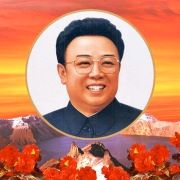(Thread IKs:
dead gay comedy forums)
|
Been very slowly going through the reading list in the OP, is there anything you guys would add or remove from the list? Raskolnikov38 posted:A Very Personal Communist Bibliography (USER WAS PUT ON PROBATION FOR THIS POST)
|
|
|
|

|
| # ? May 29, 2024 15:22 |
|
lmao croup
|
|
|
|
oh hes frolicking
|
|
|
|
lol
|
|
|
|
AnimeIsTrash posted:Been very slowly going through the reading list in the OP, is there anything you guys would add or remove from the list? Terrorism and Communism (https://www.marxists.org/archive/trotsky/1920/terrcomm/) should be added and the Mayor Dave one removed
|
|
|
|
Cuttlefush posted:Terrorism and Communism (https://www.marxists.org/archive/trotsky/1920/terrcomm/) should be added It's quite good.
|
|
|
|
gradenko_2000 posted:It's quite good.  and always topical and always topical
|
|
|
|
trots
|
|
|
Al! posted:trots pepto usually clears that up
|
|
|
|
|
Al! posted:trots things trotsky wrote =! trots
|
|
|
|
Cuttlefush posted:things trotsky wrote =! trots i know, just a fun word to say
|
|
|
|
Cuttlefush posted:things trotsky wrote =! trots yes it is
|
|
|
|
Al! posted:i know, just a fun word to say totally fair
|
|
|
|
Cuttlefush posted:
It articulates some really salient points that I think any serious marxist should internalize. It's a good read
|
|
|
|
Cuttlefush posted:Terrorism and Communism (https://www.marxists.org/archive/trotsky/1920/terrcomm/) should be added and the Mayor Dave one removed it is done
|
|
|
|
F Stop Fitzgerald posted:when trying to convince an american about anything remember you are literally arguing with the stupidest most spoiled baby whoever existed in all of history don't forget the lead poisoning!
|
|
|
|
F Stop Fitzgerald posted:oh hes frolicking
|
|
|
|
F Stop Fitzgerald posted:when trying to convince an american about anything remember you are literally arguing with the stupidest most spoiled baby whoever existed in all of history Come now, you can't say that in a universe where the habsburgs existed
|
|
|
|
Mr. Lobe posted:Come now, you can't say that in a universe where the habsburgs existed i can and i do it proudly
|
|
|
|
Cuttlefush posted:if something opens with "In recent years, many on the Left have turned away from social-democratic reformism (great!) and toward Marxism-Leninism (not so great)" and then goes on to bring up Stalin's many fuckups... i don't know what to tell you. someone saying social-democratic reform good and marxism-leninism bad but also identifies as a communist sounds as absurd as maga communism. there are a ton of legitimate criticisms to make about stalin and that period of the ussr from various marxist stripes. they just don't start out with "social-democrat reform good, marxism-leninism bad" yeah. if the USSR wasn't a marxist country then what the hell was. the only rational response if you look at the post-NEP USSR up until gorbachev's reforms and go "all of this was bad" is to accept that you're an anti-communist, which is great because you guys won the cold war.
|
|
|
|
if you think most prior and existing communist countries were dystopian nightmare hellholes, then you should oppose communism instead of claiming to still be a communist. thinking all the hundreds of millions of people before you who tried it didn't know the one weird trick you have to getting it right this time is some egotistical poo poo.
|
|
|
|
mila kunis posted:if you think most prior and existing communist countries were dystopian nightmare hellholes, then you should oppose communism instead of claiming to still be a communist. thinking all the hundreds of millions of people before you who tried it didn't know the one weird trick you have to getting it right this time is some egotistical poo poo. It's why Americans love this position. They've grown up in a world that has trained them to think that only individuals know the real deal.
|
|
|
|
antis claiming to be communists targeting the USSR for not being "really" socialist especially annoys me, because the USSR suffered from incredible privations due to civil war, and then a genocidal invasion that destroyed so much of its people and infrastructure that it never really recovered from, and still managed to lift millions of people out of poverty. westerners loved to mock the standard of living in the communist bloc, but post WW2 USSR still had better living standards than the majority of the planet - you only need look at the quality of life in post soviet russia, ukraine, etc. they only compared poorly to the the rich west, which benefited from being the insiders in the imperialist system that had a hundred+ years of a head start over socialism, and actively blockaded and economically shut out these countries coming out of massive poverty and demographic collapse from ww2. the USSR carried on did this while carrying support for anti colonial and socialist liberatory movements in the global south on their loving back, and they did it while maintaining a system that shut out capitalist exploitation - the fundamental contradictions weighing down the soviet system was the lack of a capitalist whip hand enforcing worker discipline. my favourite bits from blackshirts and reds: quote:We have been taught that people living under communism suffer from "the totalitarian control over every aspect oflife," as Time magazine (5/27/96) still tells us. Talking to the people themselves, one found that they complained less about overbearing control than about the absence of responsible control. quote:There was the manager who regularly pilfered the till, the workers who filched foodstuffs and goods from state stores or supplies from factories in order to service private homes for personal gain, the peasants on collective farms who stripped parts from tractors to sell them on the black market, the director who accepted bribes to place people at the top of a waiting list to buy cars, and the farmers who hoarded livestock which they sold to townspeople at three times the government's low procurement price. All this was hardly the behavior of people trembling under a totalitarian rule of terror. quote:Not surprisingly, work discipline left much to be desired. There was the clerk who chatted endlessly with a friend on the telephone while a long line of people waited resentfully for service, the two workers who took three days to paint a hotel wall that should have taken a few hours, the many who would walk off their jobs to go shopping. quote:If fired, an individual had a constitutional guarantee to another job and seldom had any difficulty finding one. The labor market was a seller's market. Workers did not fe ar losing their jobs but managers fe ared losing their best workers and sometimes overpaid them to prevent them from leaving. quote:Communist economies had a kind of Wonderland quality in that " prices seldom bore any relation to actual cost or value. Many expen-sive services were provided almost entirely free, such as education, medical care, and most recreational, sporting, and cultural events. Housing, transportation, utilities, and basic foods were heavily subsidized. quote:Most people living under socialism had little understanding of capitalism in practice. Workers interviewed in Poland believed that if their factory were to be closed down in the transition to the free market, "the state will find us some other work" (New Yorker, 11/ 13/89). They thought they would have it both ways. In the Soviet Union, many who argued for privatization also expected the government to continue providing them with collective benefits and subsidies. quote:They discovered they could no longer leave their jobs during the day to go shopping, that their employers provided no company doctor when they fe ll ill on the job, that they were subject to severe reprimands when tardy, that they could not walk the streets and parks late at night without fear, that they might not be able to afford medical services for their family or college tuition for their children, and that they had no guarantee of a job and might experience unemployment at any time. what the gently caress would you call a system that uses social surpluses for social ends instead of being primarily consumed by profits for individual capitalists? if that's not socialism the word doesn't mean anything. it is fine to look at this system and its warts and contradictions, and oppose it as something that doesn't work. but then you should be honest with yourself and your audience and admit to being an anti-communist, instead of going into logical contortions about how it wasn't "real marxism".
|
|
|
|
mila kunis posted:if you think most prior and existing communist countries were dystopian nightmare hellholes, then you should oppose communism instead of claiming to still be a communist. thinking all the hundreds of millions of people before you who tried it didn't know the one weird trick you have to getting it right this time is some egotistical poo poo. they also complain about democracy not being able to exist with communism, like what is more democratic than the workers controlling their own means of production? lol
|
|
|
|
AnimeIsTrash posted:they also complain about democracy not being able to exist with communism, like what is more democratic than the workers controlling their own means of production? lol i know the answer to that one: voting for the democrat party
|
|
|
AnimeIsTrash posted:they also complain about democracy not being able to exist with communism, like what is more democratic than the workers controlling their own means of production? lol technically the historical definition of democracy, which is to say decentralized slaver/rentier oligarchy, is genuinely incompatible with communism
|
|
|
|
|
mila kunis posted:antis claiming to be communists targeting the USSR for not being "really" socialist especially annoys me, because the USSR suffered from incredible privations due to civil war, and then a genocidal invasion that destroyed so much of its people and infrastructure that it never really recovered from, and still managed to lift millions of people out of poverty. westerners loved to mock the standard of living in the communist bloc, but post WW2 USSR still had better living standards than the majority of the planet - you only need look at the quality of life in post soviet russia, ukraine, etc. they only compared poorly to the the rich west, which benefited from being the insiders in the imperialist system that had a hundred+ years of a head start over socialism, and actively blockaded and economically shut out these countries coming out of massive poverty and demographic collapse from ww2. i know you're addressing this really spurious anticommunist argument, but on the opposite end of the spectrum, it's not Ultra to say that even if it guarantees a better life than the (enslaving, moloch-worshipping, anti-human) capitalist west, Dengism (or Kruschevism, or Hoxhaism, or whatever) is revisionist and isn't "AES." ideally, a USSR not under siege, not preparing for WWII, would have lit off a cultural revolution to enshrine the gains made after 1917. and also ideally, the cultural revolution in China would have been taken to completion instead of defeated. the project isn't just a better life (which the countries we call "AES" have achieved in a number of ways), it's the decommodification of human relationships (and consequently the end of misery, oppression, exploitation).
|
|
|
|
i mention it often, I know, but i've been really fascinated by the idea of Parenti's Invented Reality---Althusser's ISAs reproducing capitalist ideology in every interaction between persons or a person and a commodity. i've been reading intensely on the subject and I finally found a really top notch book that is prescriptive called Revolutionary Learning by Mojab & Carpenter. It builds on the body of work from Marx to Vygotsky to Gramsci to Freire, Myles Horton, and beyond (Paula Allman I think really moved things forward). It's talking about ideology in the context of education and not systemic self-reinforcing propaganda, but it's ultimately the same strong argument. At length they build the case (dialectically, in a similar book format to "Women, Race, and Class" building and reiterating concepts) that epistemology and ontology are at the root. It's not just an understanding of the concept of (race, gender, ability, etc), but understanding that struggle in relation to (history, political economy, etc). Maybe this sounds like an overwrought argument for diamat, but their point actually is that metacognition (thinking about how to think) is primary. the ability to discern materialist vs idealist, and to think in a dialectical materialist way, is the requisite tool to pierce the Invented veil. of course, again, this is in the context of adult learners entering into not lecture nor discussion but dialogue with each other exploring ideas with which they are fully engaging (or rather, learning how to even do this). how you apply this in a mass org falls back on structures introduced in pamphlets like Liu Shaoqi's "Inner Party Struggle" and Vicki Legion's "Constructive Criticism."
|
|
|
|
Sunny Side Up posted:it's not Ultra to say that even if it guarantees a better life than the (enslaving, moloch-worshipping, anti-human) capitalist west, Dengism (or Kruschevism, or Hoxhaism, or whatever) is revisionist and isn't "AES." you can critique and make arguments for policies being revisionist but saying the USSR or China weren't AES makes you wrong in the way an ultra would be wrong about it. if you call hoxhaism revisionism then enver shows up and spams
|
|
|
|
is there a decent book on china’s economic and political development after the civil war, covering the various decades?
|
|
|
|
posting in here just in case croup needs more victims for his mass murder (USER WAS PUT ON PROBATION FOR THIS POST) (USER WAS PUT ON PROBATION FOR THIS POST)
|
|
|
|
|
Cuttlefush posted:you can critique and make arguments for policies being revisionist but saying the USSR or China weren't AES makes you wrong in the way an ultra would be wrong about it. if you call hoxhaism revisionism then enver shows up and spams my favorite pamphlet explaining this position is Pao-Yu Ching's From Victory to Defeat: https://foreignlanguages.press/wp-content/uploads/2021/11/N01-From-Victory-to-Defeat-7th-Printing.pdf
|
|
|
|
Star posted:is there a decent book on china’s economic and political development after the civil war, covering the various decades? Hinton's Fan Shen and the sequel, Shen Fan, Meisner's Mao's China & After ?
|
|
|
|
Sunny Side Up posted:my favorite pamphlet explaining this position is Pao-Yu Ching's From Victory to Defeat: https://foreignlanguages.press/wp-content/uploads/2021/11/N01-From-Victory-to-Defeat-7th-Printing.pdf yes, that's the MLM position. I don't agree with the end results and there's quite a bit of the reasoning Pao-Yu uses I think is poor analysis, but most of that is also where faults between Deng/after and current critics of that policy (and modern china) show up. pao-yu looking at things as "developing capitalism or developing socialism" is the ultra position. i don't want to get arguing this particular paper (i'm sure it's been done in this thread) but this is the ultra position. also her history is pretty funny. left china in the early 60s for the us, got an economics phd from bryn mawr in 1978. not sure what her writings were before this paper but it's pretty funny timing. also she makes a lot of conclusions along the lines of "china did x good up until 1978, as it was developing socialism", implying it stopped, but really doesn't mention any figures for 1978 to 2019 because they wouldn't at all support the conclusion that china 'developing capitalism' after deng tanked the same figures. it's pretty obvious that china has not developed along the lines of capitalist nations. anyway, if you like the argument, whatever. it is ultra though
|
|
|
|
it's not socialism unless everyone is wearing mao suits and flat caps and trying to develop the productive forces by magical thinking
|
|
|
|
I think AES is not marxist, but it's nonetheless the revolutionary world-historical outcome of marxism. AES is a revolutionary system oriented toward overthrowing western imperialism, so it failed in countries where the gains weren't enough to offset the hardships. China started figuring out the nature of AES when Mao declared that the principal contradiction in the world was between imperialism and oppressed nations, and Xi's CPC has been reorganized to win that revolution. CPC's commitment to AES ("Chinese characteristics") wasn't revising marxism, it was a genuine dialectical breakthrough. It allowed them build their own system based on its own merits and the scientific method, with revolutionary results. To be revisionist, Xi would have to be wrong, his revolution would have to either fail or be surpassed by someone else.
|
|
|
|
Cuttlefush posted:yes, that's the MLM position. I don't agree with the end results and there's quite a bit of the reasoning Pao-Yu uses I think is poor analysis, but most of that is also where faults between Deng/after and current critics of that policy (and modern china) show up. pao-yu looking at things as "developing capitalism or developing socialism" is the ultra position. i don't want to get arguing this particular paper (i'm sure it's been done in this thread) but this is the ultra position. Comrade Koba posted:it's not socialism unless everyone is wearing mao suits and flat caps and trying to develop the productive forces by magical thinking As far as I understand, it isn’t some assumption that productive forces will develop magically. It’s the same thing I’m talking about with Parenti and ISAs, climate nihilism, and the death of Public Health. Your self-reproducing ideological engine is what creates culture, consistency, longevity, etc. Whether it’s a small cadre or a national project, struggling together and finding mutual understanding produces resilience and great ideas (efficiency, synergy). Ultra-leftism is usually connected with some illusion that revolution or victory is closer than it actually is. In this case, the argument isn’t related to proximity but direction and priority.
|
|
|
totality posted:I think AES is not marxist, but it's nonetheless the revolutionary world-historical outcome of marxism... what is marxism?
|
|
|
|
|
totality posted:I think AES is not marxist, but it's nonetheless the revolutionary world-historical outcome of marxism. AES is a revolutionary system oriented toward overthrowing western imperialism, so it failed in countries where the gains weren't enough to offset the hardships. China started figuring out the nature of AES when Mao declared that the principal contradiction in the world was between imperialism and oppressed nations, and Xi's CPC has been reorganized to win that revolution. Good post, thank you. This makes a lot of sense in terms of imperialism as the primary contradiction.
|
|
|
|

|
| # ? May 29, 2024 15:22 |
|

|
|
|
































